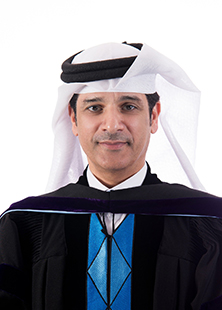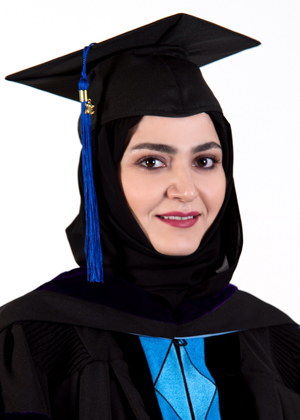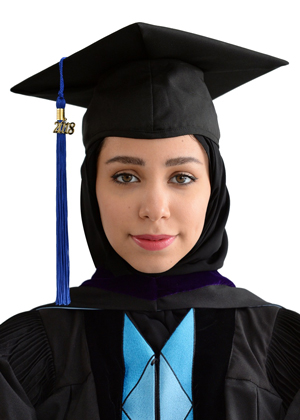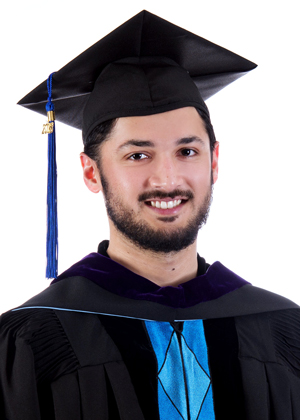
New generation of graduates set to contribute to Qatar’s burgeoning legal profession
As the State of Qatar charters new routes of far-reaching connectivity, the nation requires leaders who can manage multi-faceted relationships and navigate different legal systems. Hamad Bin Khalifa University (HBKU) actively contributes to this vision as it graduates its very first cohort of students from its Juris Doctor (JD) legal education program. HBKU’s JD is the first-of-its-kind graduate law degree in the Middle East and North Africa region
Cooperation with internal and external partners lent the college a unique and advantageous head-start in its very own process of maturation. CLPP has already gained a strategic edge enabling it to develop a leading-edge curriculum as well as practice of instruction and scholarship, with the goal of delivering the maximum knowledge and value to students and to partners.
Further complementing the College’s teaching approach is the insight CLPP gives its students into the highest traditions of legal education. Speaking about his motivation to join HBKU CLPP’s JD program, Umair Dogar, a graduating student, said: “I pursued a higher education in law for two reasons. First, a world-class law program brilliantly complemented my undergraduate academic background in international politics, helping me broaden my understanding of the various levers of power in societies. Second, law is interconnected with various other disciplines so you cannot learn one without the other, which makes law-in-action all the more exciting. The varying professional backgrounds of JD candidates at CLPP had a profound impact on class discussions and the high quality of these interactions greatly augmented my professional development and satisfied my intellectual curiosity.
"The JD program has helped me develop a deep interest in public international law and environmental policy. It has also equipped me with the necessary know-how to take my interest in these two areas further."
In addition to cultivating a rich classroom experience, through tours and visits at global powerhouses, CLPP transcends borders of knowledge and allows JD students a glimpse at the real world scenarios that bear special relevance. A Class of 2018 alumna described her experience at the Court of Justice of the European Union (CJEU). Asma Al-Khulaifi said: “Our participation in the 2017 EUROPA Moot Court Competition in Greece helped us better understand the application of EU law as well as the discourse currently taking place on ways to circumvent the current global refugee crisis. It also helped us develop our skills in oral argument, as we were able to witness proceedings of the court first-hand and note how the CJEU highlighted in their discussions the concepts of solidarity, sovereignty and possible dislocation of the EU institutions.
“Similarly, our participation in the 2018 Philip C. Jessup International Moot Court Competition – the largest moot competition in the world – was a huge learning curve for us as we delved very deep into areas of international law such as inter-state arbitration, nuclear non-proliferation, maritime law, and the use of force.”
Another CLPP graduate hopes to leverage on the international exposure opportunities the JD program provided. Afaf Al-Kazem, Class of 2018, said: “By structure, the JD program at HBKU has been developed to provide the students with the broad perspective of a diverse range of legal systems. Having the opportunity to take part in moots around the world made it very clear to me that our program – even though very new – stands amongst the best law programs internationally.
“Most recently, the 2018 EUROPA Moot Court Competition in Greece allowed me to appear before the highest judges in the European Union including the Advocate General of the European Court of Justice. The rigorous preparation as an extracurricular seminar provided me with practical experience in presenting oral arguments before a high court, as well as legal analysis of a foreign law. Through the opportunity to exercise the knowledge we gain in classrooms in actual practice around the world, I was reminded that HBKU’s graduates may go on to qualify in the practice of law not only domestically, but also internationally after graduation.”
 |
|
|
 |
| Khalid Al-Ansari | Asma Al-Khulaifi | Umair Dogar | Afaf Al-Kazem |
Today, the free flow of discourse occurring between different organizations, industries, and corporate legal systems presents an opportunity for unprecedented growth. However, to help these very unique players interact productively – and lawfully – they need the support of interlocutors that are as much native speakers of the local Qatari legal system as they are of a diverse range of international judicatory systems.
Be it in their necessity to reach agreement or in their imperative to resolve dispute swiftly and fairly – individuals, companies, nations, and multinational bodies are all united in their desire of skilled legal consultants and practitioners who may complement accord through navigating a complex slew of arbitration mechanisms.
With three internship experiences lending him a very privileged insight into the local market, Class of 2018 alumnus, Khalid Al-Ansari said, “I interned with three leading local organizations during the course of my JD program –in government, healthcare research, and corporate law. During each placement, I understood more about the unique set of legal regulations that entities need to abide by to operate effectively in an economy. Each of the brief training experiences broadened my understanding of how law is applied in Qatar by undertaking research assignments on day-to-day legal issues. It also allowed me to implement what I learned throughout the JD program in actual practice, such as writing legal opinions.
“Today, I think there is a vast need for qualified legal professionals in Qatar's growing market. Those who qualify to practice law in Qatar in a governmental capacity – after undergoing the necessary qualifying and/or mandatory Ministry of Justice courses; subsequent stage of local work experience; and finally clearing the bar requirements – and others who elect to serve Qatar-based organizations in various legal consulting capacities will both have much to contribute to the improving the legal compliance and the growth of the market.”







